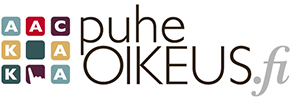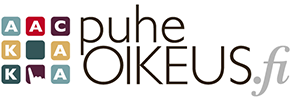![]() The habilitation and handicap service systems are degrading, inefficient, bureaucratic, fragmented and anything but service in one place for the disabled person and the family. The families need a smooth daily life, sometthing that works and that makes life easy/easier. What they get is a complicated, supervising, questioning and actively marginalising bureaucracy and a ”it is not done – here”. Discontinuity and red tape seem to be key words here. No one knows what is being done elsewhere. Only the families know the big picture, but they lack the mandate and means to lead their own lives.
The habilitation and handicap service systems are degrading, inefficient, bureaucratic, fragmented and anything but service in one place for the disabled person and the family. The families need a smooth daily life, sometthing that works and that makes life easy/easier. What they get is a complicated, supervising, questioning and actively marginalising bureaucracy and a ”it is not done – here”. Discontinuity and red tape seem to be key words here. No one knows what is being done elsewhere. Only the families know the big picture, but they lack the mandate and means to lead their own lives.
![]() We lack professional expertise (above all in the minority language Swedish) within assistance, teaching, educational boards, material production, care and social work. Most of the other professions are not present at all in Swedish and there’s a deficiency in Finnish, too. Yet, no Alternative B is taken into action, nor are the carers eligible for paid work in spite of their enormous competence. Many municipalities choose to offer only one kind of service for certain needs even though the law talks about different types of services.
We lack professional expertise (above all in the minority language Swedish) within assistance, teaching, educational boards, material production, care and social work. Most of the other professions are not present at all in Swedish and there’s a deficiency in Finnish, too. Yet, no Alternative B is taken into action, nor are the carers eligible for paid work in spite of their enormous competence. Many municipalities choose to offer only one kind of service for certain needs even though the law talks about different types of services.
![]() The total lack of school books and materials (AAC), aids, devices and a shortage of competent resources cement the children on an earlier developmental level than their potential. Those lacking speech are deprived of their right to talk and to express themselves as they get no devices, no school materials and as close to no AAC-speaking adults are available. Also, the vocabulary of communication aids (unintentionally) lead to passive persons who lack initiative but who are compliant and want little more than a banana. It is not possible to tell about wrongdoings using AAC devices. The vocabulary is too small and the devices are taken into use too late, without consultation or a link to school work and life in general.
The total lack of school books and materials (AAC), aids, devices and a shortage of competent resources cement the children on an earlier developmental level than their potential. Those lacking speech are deprived of their right to talk and to express themselves as they get no devices, no school materials and as close to no AAC-speaking adults are available. Also, the vocabulary of communication aids (unintentionally) lead to passive persons who lack initiative but who are compliant and want little more than a banana. It is not possible to tell about wrongdoings using AAC devices. The vocabulary is too small and the devices are taken into use too late, without consultation or a link to school work and life in general.
![]() In spite of a fairly high quality social legislation, laws are not applied in practice and this occurs without sanctions. The municipalities knowingly count on families not having the energy to process. Cuts in services start from those already deprived of their rights and services as laws have not been obeyed for decades. The families should be compensated and restituted. Services should be lifted to the legal level. There is no social responsibility law in Finland. Thus, the municipalities may (deliberately) under budget without any sanctions. And they do. It would be easy to list and fulfil the needs, using the Service Plan forms of Jaatinen.org. The statutory service coaching and service plans do not work. The carers are marginalised and are utilised beyond reason. There’s a shortage or lack of individual and linguistically adapted services – the needs are met with just a shrug.
In spite of a fairly high quality social legislation, laws are not applied in practice and this occurs without sanctions. The municipalities knowingly count on families not having the energy to process. Cuts in services start from those already deprived of their rights and services as laws have not been obeyed for decades. The families should be compensated and restituted. Services should be lifted to the legal level. There is no social responsibility law in Finland. Thus, the municipalities may (deliberately) under budget without any sanctions. And they do. It would be easy to list and fulfil the needs, using the Service Plan forms of Jaatinen.org. The statutory service coaching and service plans do not work. The carers are marginalised and are utilised beyond reason. There’s a shortage or lack of individual and linguistically adapted services – the needs are met with just a shrug.
![]() When it comes to treatment and approach, many kids with a grave speech disorder or autism are met with silence and no signs or AAC. Their vocabulary is not enlarged. Day carers and other professionals await initiatives from the kids first. It is common to blaim the special families for how tough it is in day care when these kids arrive in the morning in cases of shortage of personnel. Families are often asked to stay at home with their child and too often the less experienced substitute personnel is placed with the special child.
When it comes to treatment and approach, many kids with a grave speech disorder or autism are met with silence and no signs or AAC. Their vocabulary is not enlarged. Day carers and other professionals await initiatives from the kids first. It is common to blaim the special families for how tough it is in day care when these kids arrive in the morning in cases of shortage of personnel. Families are often asked to stay at home with their child and too often the less experienced substitute personnel is placed with the special child.
![]() Wrongdoings are not uncommon. The word means more than ”mere violence”. It’s a multiple case of wrongdoings not to speak the kid’s language (AAC), to punish the child for our errors and to jump at or attack kids by several adults in order to ”calm the kid down”. To report a kid as the originator of a minor casuality (with no one getting hurt) is a flagrant case of wrongdoing, however not uncommon even in cases of communication errors from the part of the adult. It’s a case of wrongdoing also when our communication errors lead to punishments or medication – for the child.
Wrongdoings are not uncommon. The word means more than ”mere violence”. It’s a multiple case of wrongdoings not to speak the kid’s language (AAC), to punish the child for our errors and to jump at or attack kids by several adults in order to ”calm the kid down”. To report a kid as the originator of a minor casuality (with no one getting hurt) is a flagrant case of wrongdoing, however not uncommon even in cases of communication errors from the part of the adult. It’s a case of wrongdoing also when our communication errors lead to punishments or medication – for the child.






